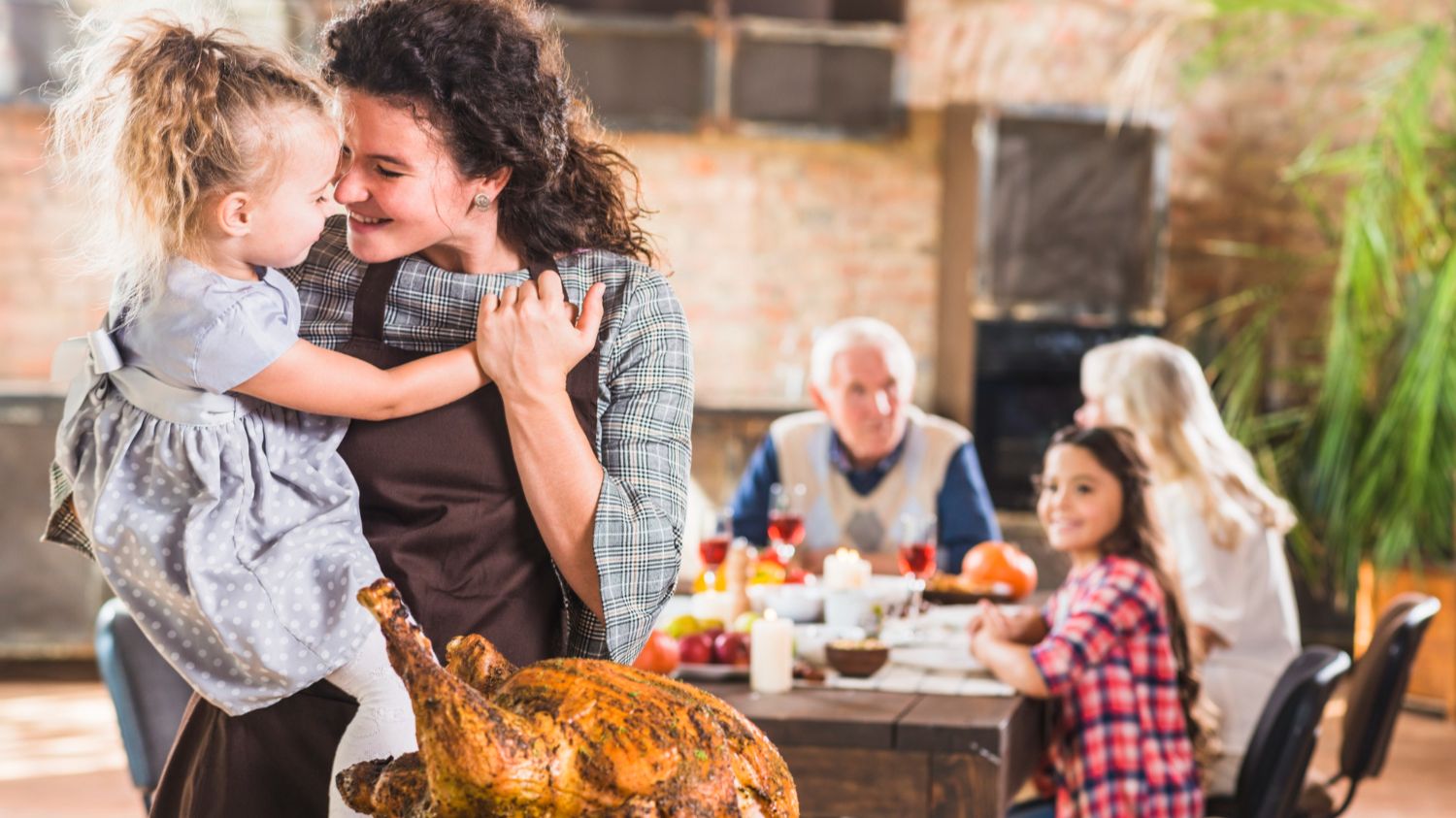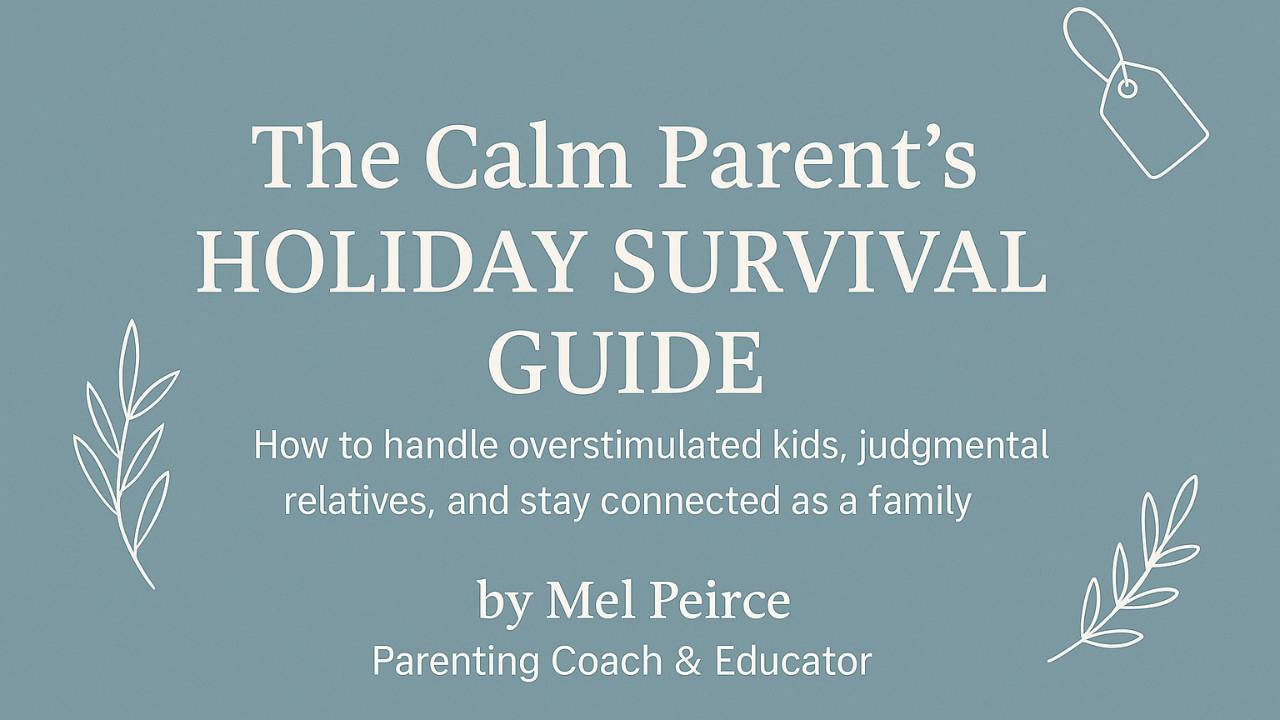Raising Grateful Kids
Nov 19, 2023
Thanksgiving is right around the corner, and this time of year we are typically counting our blessings and discussing that which we are grateful for — and once we intentionally start looking for things that we’re grateful for, our brains start to filter for it and we start to see things differently. All of a sudden, we are seeing more of what is right in our world and finding the gifts in the challenges.
Given that gratitude is associated with increased levels of happiness, how do we make gratitude a habitual way of thinking throughout the rest of the year and how do we raise more grateful kids?
I invite you to consider that gratitude is more than a once a year activity and just saying thank you. Gratitude is a practice, and researchers* found that when parents increased their own gratitude practice, their children showed increased displays of gratitude as well.
Here are three things that you can do to help your whole family develop a gratitude practice. Consider using questions like these to spark discussions with your kids at the dinner table or in the car.
1 - Look for things to be grateful for every day.
What in your life might you be taking for granted that you are really grateful for?
A couple of my favorites are automatic dishwashers and flushing toilets. I am super grateful that someone invented these conveniences! This question can inspire some really fun conversations with your kids by talking about what life might be like without them.
Did you experience any acts of kindness from someone else today?
We can get so caught up in everything that we’re doing that we either don’t notice or don’t take a moment to truly be grateful when someone else does something that lifts us up. It could be someone stopping to let us get ahead of them in traffic with a friendly wave, or a big smile and upbeat conversation from the cashier as you were checking out. Your child could have had someone slide over to give them a seat on the bus, or another student hold a door for them when they had their hands full.
2 - Pay attention to the feelings.
How are you feeling as you are thinking about what you are grateful for?
Our brains are designed to justify our feelings. This can be a problem when we are frustrated because our brain will actively search for more reasons why we should be frustrated. But this is a great feature when we are actively looking for reasons to be grateful. When we pay attention to the feelings that we experience when we are grateful, our brains will look for more reasons to justify why we are feeling good. The key is to really notice and feel them — versus glossing over them which can happen when we say an automatic “thank you”.
How did you feel when someone did something nice for you?
How do you think it made them feel to do something nice for you?
How do you feel when you do something nice for someone else?
These questions help your kids pay attention to the feelings that they are experiencing, and it helps them develop empathy. They also help your kids realize the impact of their actions, especially when they are kind and helpful!
As for you, how often does someone offer to help you — and you decline the help? How often do you tell others that you’ve got it covered when you really could have used a hand?
Once I started paying attention to this, I realized I was declining help all the time!
I had a hard time accepting help, even when I could really use it, and I know that I’m not alone on this. But when I stopped to think about how good it feels to be able to help others, I realized I was taking away the opportunity for someone else to feel good when I declined their help. Consider that our kids are watching us, so we’re teaching them to do the same.
3 - Express appreciation for what you are grateful for.
How can I express true appreciation when I’m grateful?
We can miss true moments of gratitude, as well as the opportunity to return the good feeling with an automatic “thank you”. Imagine if you took just a minute to say thank you for helping to brighten my day to the cashier that lifted you up, or even I’m so appreciative that you stopped to hold the door open and waited for me. I guarantee that little extra comment beyond “thank you” would lift that person up in return. And every time you do this in front of your child, you are teaching them about kindness, appreciation, and gratitude.
For most people, developing a gratitude practice has to be intentional. Our brains are not naturally designed to look for things to be grateful for. Instead, they are designed to look for the negative and potential danger in our lives as that is what kept our ancestors alive. We have to intentionally train and program our brains to look for the good and what we are grateful for. The good news is that when you make a practice of looking for things to be grateful for — and you model this for your kids — you help make gratitude a natural practice for them as well.
As I wrap this up, I want to thank you. I'm so grateful you read my blogs. I hope these tips and strategies are helping you parent differently and that they are having a ripple effect on your kids and families. Happy Thanksgiving!
* Hussong, A.M., Langley, H.A., Rothenberg, W.A., Coffman, J.L., Halberstadt, A.G., Costanzo, P.R., & Mokrova, I. (2018). Raising grateful children one day at a time. Applied Developmental Science.
Join the Confident Parenting Community.
Receive the latest tips and tools from the Confident Parenting Toolbox to support your kids
(and yourself!) with today's challenges so your whole family can thrive.
We hate SPAM. We will never sell your information, for any reason.


